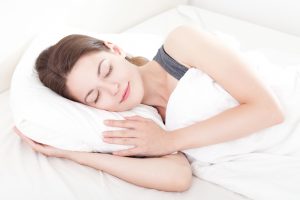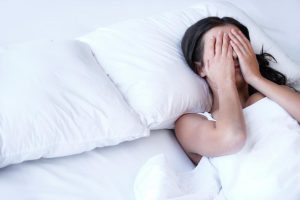
Sleeping Postion for Snorers
August 12, 2020

Your Brain Without Sleep
March 3, 2020
The alarm goes off. You hit snooze. Can it really be time to get up already? After a night full of tossing and turning and barely getting a total hour of sleep, it’s going to be a rough day. But as much as you feel like you won’t be able to keep your eyes open during the day, it’s not just your body that is exhausted, your brain is too and you might not be as sharp as you need to be today.

Can Sleep Apnea Affect My Other Medical Conditions?
February 4, 2020
A true Sleep Rehab patient story, originally published on YouTube
Mrs. Dillard wasn’t feeling very rested in the morning and was snoring more often than before, as reported by her husband. In addition to some allergies she was experiencing, she went in for a consult with her Ear, Nose, and Throat (ENT) doctor. The ENT doctor, after a check-up, noticed some irregularities in her current medical condition thus recommending a professional sleep test by Sleep Rehab. She and her husband both came into the Sleep Rehab office for Mrs. Dillard’s first sleep test, and sure enough, Sleep Apnea was diagnosed.
However, she wasn’t the typical patient that Dr. Fedosky usually sees, because of her lack of the usual symptoms – Mrs. Dillard wasn’t crippling exhausted upon waking, nor was her snoring out-of-control and unbearable. But, her Sleep Apnea was in fact, making her other medical conditions worse and there was no question that it needed to be fixed.
Sleep Apnea can worsen other medical conditions like, but not limited to:
- Propensity for strokes
- High blood pressure
- Arrhythmia of the heart
- Heart disease
So, by controlling Sleep Apnea, you can also potentially control these other medical conditions, as they can be linked.
We are happy to report that after working with Dr. Fedosky and the Sleep Rehab team, Mrs. Dillard was relieved of her former tiredness and even snoring (which makes for a very happy husband!) and her Sleep Apnea is now controlled.
See the full patient story of Mr. and Mrs. Dillard below! Do you identify with Mrs. Dillard and interested in having a sleep test performed? If you believe you may be experiencing unusual symptoms for Sleep Apnea or looking for a doctor that can help you, contact Dr. Fedosky at Sleep Rehab today.
